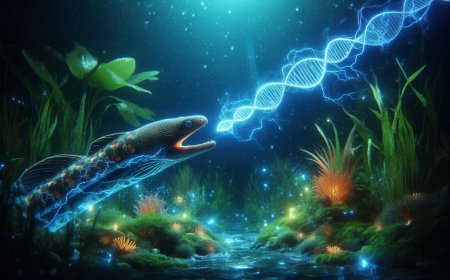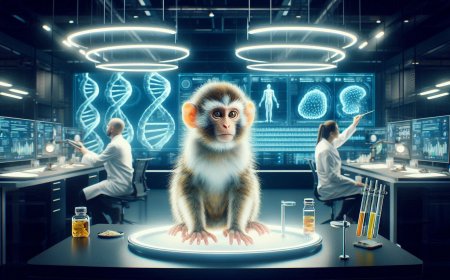SpaceBorn United: Pioneering Human Reproduction in Space
Explore SpaceBorn United's groundbreaking efforts in pioneering human reproduction in space. Discover how scientists are advancing human biology in zero gravity, paving the way for humanity's future in space.

As the race to explore and colonize space accelerates, one essential question remains largely unaddressed: can humans reproduce in space? Enter SpaceBorn United, a Netherlands-based startup on a groundbreaking mission to tackle this very issue. While we’ve made incredible strides in space travel, the concept of ensuring human survival beyond Earth—through reproduction—poses unprecedented challenges.
The Risks of Space Reproduction
The natural process of conception in space isn’t as straightforward as it is on Earth. Space radiation, microgravity, and the unknown effects on embryonic development all present serious risks. Without the stabilizing forces of Earth's gravity and protection from cosmic radiation, ensuring the survival and healthy development of embryos becomes a daunting task. But SpaceBorn United is undeterred, determined to find solutions that could make reproduction in space not only possible but safe.
IVF in Space: A High-Tech Solution
At the heart of SpaceBorn United’s vision is their innovative approach to in-vitro fertilization (IVF). The startup has developed a miniaturized IVF and embryo incubator that could revolutionize space reproduction. Imagine a device no larger than a CD-ROM, packed with cutting-edge microfluidic technology. This disc-shaped device simulates Earth-like gravity by spinning, and it contains separate chambers for sperm and eggs, ensuring a controlled environment for conception in space.
This futuristic device could allow for IVF procedures to be conducted in microgravity, offering invaluable data on how conception might work in the unique conditions of space. What’s more, the insights gleaned from these experiments could enhance IVF treatments here on Earth, refining our understanding of human reproduction in both gravity and zero-gravity environments.
Overcoming Ethical and Regulatory Hurdles
Of course, pushing the boundaries of science in space is not without its obstacles. International guidelines impose strict regulations on human embryo research, with a notable restriction on cultivating embryos beyond 14 days. SpaceBorn United is mindful of these ethical concerns and has planned its initial ARTIS missions to focus on mouse cells, with human trials awaiting regulatory approval. The company’s vision is clear: start with animals, and, pending success and approval, eventually move to human reproduction in space.
Looking to the Future of Human Life in Space
SpaceBorn United’s ambitions go far beyond just conception. Should these embryos successfully develop, the company envisions bringing them back to Earth for pregnancy and birth, ensuring the optimal conditions for life. This approach safeguards the health of both the developing embryos and the eventual newborns.
As space tourism and exploration rapidly advance, driven by investments from the likes of SpaceX and Blue Origin, the prospect of everyday people venturing beyond Earth becomes more likely. But SpaceBorn United emphasizes a crucial reality: space exploration isn’t just about setting foot on new planets, it’s about ensuring life can continue and thrive there. Human survival beyond Earth hinges on more than just transportation—it depends on our ability to reproduce and propagate our species in foreign environments.
A New Frontier for Space Exploration
SpaceBorn United is taking on one of the most profound challenges of interplanetary life: the future of human reproduction. Their pioneering work highlights the fact that becoming an interplanetary species involves more than just exploration—it’s about ensuring the continuity of human life. As we look to the stars, SpaceBorn United is preparing to help humanity take its next great leap, one that ensures our species not only survives but thrives in the cosmos.
What's Your Reaction?
































































































